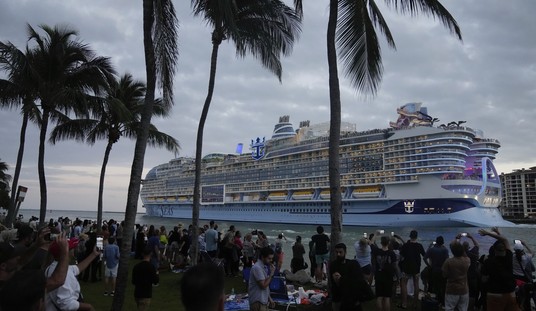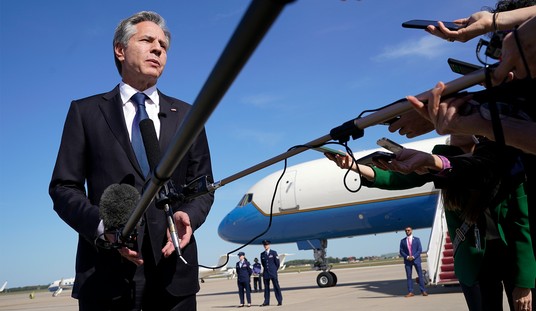Only two men are left alive from the 80 airmen and pilots who took off from the deck of the USS Hornet on April 18, 1942, and set out to send Japan a message that the U.S. would stop at nothing to win the war begun by Japan a few months earlier.
Retired Lt. Col. Richard “Dick” Cole, 99, and Staff Sgt. David Thatcher, 93, are the last of the Doolittle Raiders — the men who struck the first blow against the Japanese empire by bombing Tokyo. They are in Dayton, Ohio, today to present the Raiders Congressional Gold Medal to the National Museum of the US Air Force.
“It just happens that way, I guess,” Thatcher, of Missoula, Montana, said of being one of the last survivors.
“Something’s just got to give,” said Cole, a Dayton native who lives in Comfort, Texas.
The museum’s director, retired Lt. Gen. Jack Hudson, accepted the medal, the highest honor Congress can give a civilian, for them in Washington on Wednesday. In a video message, Cole said it was an honor to receive the medal “on behalf of 78 fallen Raiders who we proudly served with on that famous raid.”
The latest Raider to fall was Lt. Col. Robert Hite, who died March 29 at age 95 at a Nashville, Tennessee, nursing facility. Hite was also the last of the eight Raiders who were captured by Japanese soldiers. Three were executed and a fourth died in captivity. Three other Raiders were killed soon after the bombing run, as most crash-landed or had to ditch.
Cole was the co-pilot for their mission’s leader, James “Jimmy” Doolittle, in plane No. 1 of the 16. Thatcher was engineer-gunner aboard the 7th plane, nicknamed “The Ruptured Duck,” whose crew’s crash-landing and evasion of Japanese troops in China was depicted in the movie “Thirty Seconds Over Tokyo.”
Thatcher, who was played by Robert Walker in the movie while Spencer Tracy portrayed Doolittle, chuckled as he recounted how the Raiders had given little thought at the time of the raid about earning a place in history.
“We figured it was just another bombing mission,” he said in a phone interview from his home this week.
In the years afterward, though, he said, they realized: “It was an important event in World War II.”
Thatcher, who said he uses a cane and walker but otherwise is “getting around OK,” was looking forward to weekend events including reunions with family members of the other Raiders to share stories and remembrances.
“You learn something new every time,” Thatcher said.
Sixteen specially outfitted B-25s — a land-based bomber not designed for carrier take-offs — flew the long, perilous mission to drop a few bombs on the Japanese capital, also hitting targets in Yokohama and one each in Yokosuka, Nagoya, Kobe and Osaka. They took off 10 hours early after the task force was sighted by a Japanese picket boat, but all 16 crews managed to make it to the coast of China where most of the crews bailed out after running out of fuel.
Friendly villagers rescued all but 10 of the Raiders, which resulted in massive, brutal retaliation by the Japanese.
That generosity shown by the Chinese would trigger a horrific retaliation by the Japanese that claimed an estimated quarter-million lives and would prompt comparisons to the 1937-38 Rape of Nanking. American military authorities, cognizant that a raid on Tokyo would result in a vicious counterattack upon free China, saw the mission through regardless, even keeping the operation a secret from their Pacific theater allies. This chapter of the Doolittle Raid has largely gone unreported—until now.
Long-forgotten missionary records discovered in the archives of DePaul University for the first time shed important new light on the extent to which the Chinese suffered in the aftermath of the Doolittle raid.
n the moments after the attack on Tokyo, Japanese leaders fumed over the raid, which had revealed China’s coastal provinces as a dangerous blind spot in the defense of the homeland. American aircraft carriers not only could launch surprise attacks from the seas and land safely in China but could possibly even fly bombers directly from Chinese airfields to attack Japan. The Japanese military ordered an immediate campaign against strategically important airfields, issuing an operational plan in late April, just days after the Doolittle raid.
Survivor accounts point to an ulterior objective: to punish the Chinese allies of the United States forces, especially those towns where the American aviators had bailed out after the raid. At the time, Japanese forces occupied Manchuria as well as key coastal ports, railways and industrial and commercial centers in China.
[…]
By early June, the devastation had begun. Father Wendelin Dunker observed the result of a Japanese attack on the town of Ihwang:
“They shot any man, woman, child, cow, hog, or just about anything that moved, They raped any woman from the ages of 10 – 65, and before burning the town they thoroughly looted it.”
He continued, writing in his unpublished memoir, “None of the humans shot were buried either, but were left to lay on the ground to rot, along with the hogs and cows.”
The Japanese eventually captured eight of the Americans, executing three for “war crimes.” One American died in captivity and the remaining four were eventually rescued by soldiers when Nanking, where the prisoners were being held, was liberated.
The audaciousness of the raid had a big effect on American morale, but it was the Japanese, shaken by the notion that their cities were not invulnerable, who were affected even more. The military actually moved up plans to attack Port Morseby, New Guinea and Midway Island. When our codebreakers, who had cracked one of the Japanese navy cyphers, intercepted the information, the resulting naval engagements in Coral Sea and especially the decisive battle off of Midway Island sealed the fate of Japan and sent us on the road to victory.
The World War II generation is rapidly receding into history, but exploits like the Doolittle Raid will never be forgotten as long as courage and fortitude are celebrated in America.









Join the conversation as a VIP Member